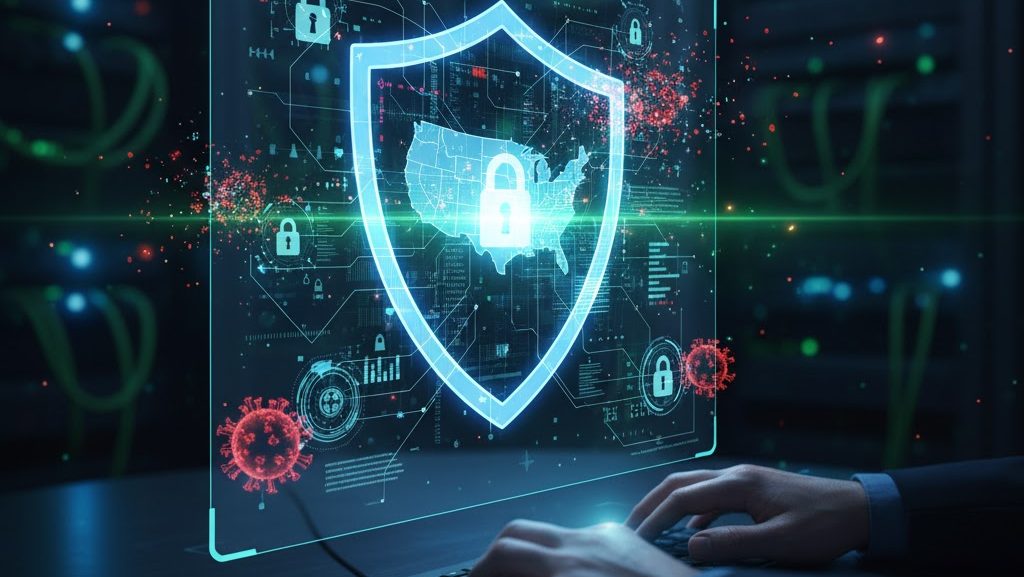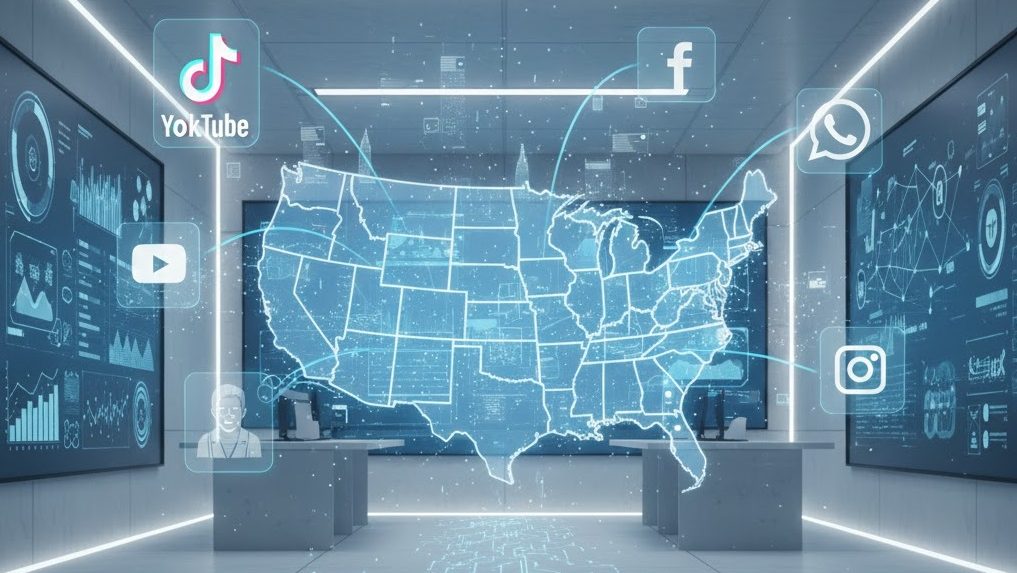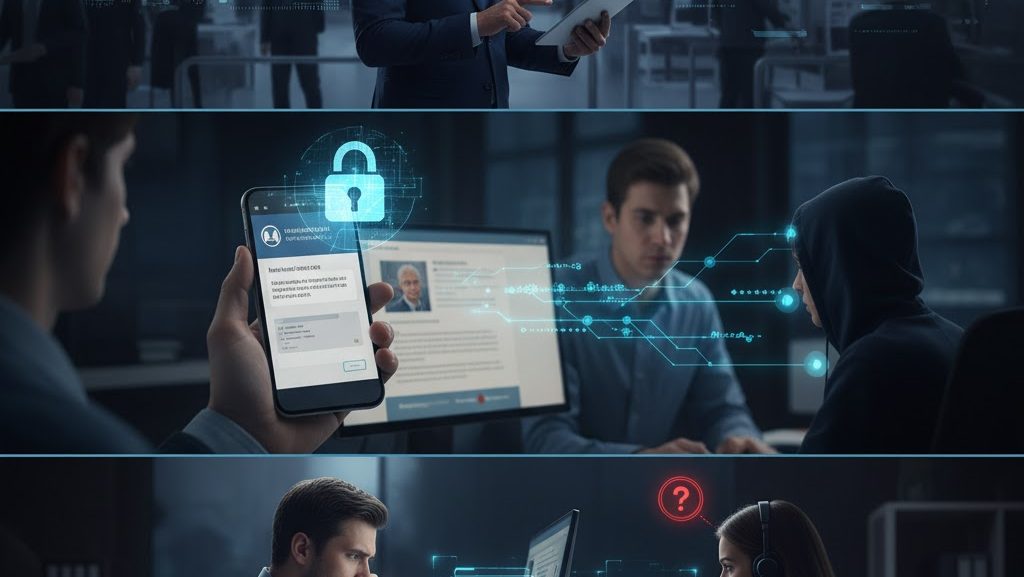In an age where cyber threats evolve daily, choosing the best antivirus and security software is a critical decision for U.S. consumers and businesses alike. You want reliable protection without slowing down your system, clear support when issues arise, and peace of mind that your data is safe.
This article helps you navigate that decision. We’ll explore what modern security tools must offer, compare top contenders, highlight trade-offs, share research insights, and give you actionable tips to pick the right solution for your needs.
Why Antivirus Still Matters—but Needs to Evolve
Before we deep dive into software options, it helps to understand:
- Modern threats are more sophisticated
Ransomware, zero-day exploits, fileless malware, and advanced persistent threats (APTs) go beyond classic “virus” definitions. Traditional signature-based detection alone is no longer sufficient. A 2025 study in the Harvard International Journal of Engineering Research and Technology compared traditional antivirus and next-generation antivirus (NGAV) systems and found that NGAV—using behavioral analytics, artificial intelligence, and threat intelligence—“significantly outperforms traditional antivirus in detecting and mitigating advanced threats.” harvardpublications.com - Detection is imperfect and under constant arms-race
A University of Tel Aviv study (conducted for security firm Imperva) tested about 40 antivirus products against 82 malware files. Initially, many detections were zero; only after days to weeks did even strong products pick up many threats. The authors cautioned that relying solely on antivirus gives a false sense of security. GovTech - Also, adversarial research (e.g. Mate! Are You Really Aware?) shows that malware detection models can be manipulated via feature-space attacks, enabling evasion of commercial antivirus engines. arXiv
- There is still real value in good endpoint protection
Multiple analyses and reviews (e.g. AntiViruses under the microscope) emphasize that antivirus is still a frontline defense and that integrating multiple layers—firewalls, intrusion detection, behavior monitoring, regular updates—yields the best practice. ScienceDirect - Effectiveness depends on system environment
A Serbian study of antivirus application found that computer configuration (RAM, CPU, system settings) heavily influences how quickly an antivirus responds to threats. The authors found that “system requirements of the computer system affect the response rate of antivirus programs and the detection of different types of viruses.” ResearchGate
Bottom line: No single product is perfect. Your best strategy is layered security: antivirus + safe habits + backups + updates.
Features to Prioritize in an Antivirus / Security Suite
When comparing products, focus on features that matter in real use. Here’s a checklist:
| Feature | Why It Matters | What to Look For |
|---|---|---|
| Real-time protection / heuristic + behavior detection | To catch unknown threats | Behavior-based engines, machine learning, zero-day layers |
| Ransomware protection & rollback / file shielding | Ransomware is a high-risk threat | Versioning, file vaults, automatic rollback |
| Low system impact / performance | So your device isn’t slowed | Lightweight engine, optimization settings, benchmarks |
| Web protection / phishing and malicious URL blocking | Many attacks start via web | Browser plug-ins or built-in filtering |
| Firewall & network protection | To block inbound/outbound threats | Stateful firewall, network scanning, port monitoring |
| VPN / privacy tools | Protects your network traffic and location | Reasonable speed, no-logging policy |
| Device/OS support | Multi-platform use | Windows, Mac, iOS, Android coverage |
| Update frequency & vendor reputation | You want rapid response to new threats | Frequent definition updates, active security research team |
| Support, warranty, licensing flexibility | For peace of mind | Live support, renewal options, multi-device licensing |
Top Antivirus & Security Suites to Consider (2025)
Here are strong options for U.S. users. The list is not exhaustive, but these are widely reviewed and respected in the industry:
Below are a few highlights from the above:
- Norton 360 Standard: A well-known, full-featured suite with firewall, VPN (limited), identity protections, and device security.
- Bitdefender Total Security: Frequently tops independent lab scores (AV-Test, AV-Comparatives).
- Kaspersky Antivirus Premium: Strong detection and good feature set (note: check geopolitical licensing issues for critical use).
- ESET Premium Security: Lightweight, good for power users and older hardware.
- McAfee Internet Security: Broad brand recognition, good bundling options.
- Quick Heal Internet Security: Often favored in Asian markets; may have variable performance in U.S. settings.
Each product above is cited once. Though some have variant editions (Plus, Deluxe, etc.), the core engine is similar.
How These Suites Stack Up
Below is a simplified comparative table. Real-world performance depends on your system, test conditions, and updates.
| Suite | Strengths | Potential Weaknesses | Best For |
|---|---|---|---|
| Norton 360 Standard | Balanced features, identity protection, tech support | VPN is limited, may have package upsells | Home users who want a trusted brand and all-in-one solution |
| Bitdefender Total Security | Excellent lab scores, strong threat detection, multiple platforms | Occasional false positives | Power users, families with multiple devices |
| Kaspersky Antivirus Premium | Deep detection, robust anti-phishing | Political/geo restrictions in some locations | Security-minded users who want top detection |
| ESET Premium Security | Lightweight, low system load, advanced settings | Fewer extras (VPN, identity tools) | Users on older hardware or who want minimal overhead |
| McAfee Internet Security | Good brand features, bundling | Sometimes heavy on background tasks | Users who like one-vendor solution (antivirus + VPN + identity) |
| Quick Heal Internet Security | Affordable, decent features | Might lag behind top-tier competitors in detection | Budget-conscious users or secondary devices |
Choosing the Right Antivirus for Your Use Case
Here are guidelines to match software to your situation:
- Single device vs multi-device
If you use multiple devices (desktop, laptop, mobile), pick suites that cover multiple OS and allow flexible licenses. - Performance constraints
Older or less powerful systems need lightweight solutions (ESET, Bitdefender’s “Game/Light” mode). - Feature priorities
If you value VPN + identity protection + firewall in one package, look for “Total Security” or “Premium” versions. - Budget vs advanced protection
Free or cheap antivirus can cover basics, but advanced features (behavior engines, rollback, zero-day reputation) typically come in paid tiers. - Geopolitical / privacy considerations
Some users prefer vendors headquartered in jurisdictions with strong privacy laws, or with transparent independent audits. - Trial & monitoring
Always test a product during the trial period. Use built-in system activity monitors (CPU, memory) to confirm it’s not impeding your workflow.
Practical Tips to Maximize Protection
Even the best software fails if practices are weak. Here are key tips:
- Enable automatic updates (definitions + software)
- Scan regularly (full scan weekly or biweekly)
- Run occasional offline scans / rescue disks
- Use strong, unique passwords + a password manager
- Enable two-factor authentication (2FA) for all accounts
- Back up important data to offline / cold storage
- Avoid installing untrusted software or clicking unknown links
- Keep your OS and other software patched
- Use network-level protections (router firewall, DNS filtering)
Research Insights & Technical Considerations
- Independent Lab Testing
AV-TEST and AV-Comparatives remain the go-to for evaluating antivirus software. AV-Comparatives is supported by academic bodies (e.g., University of Innsbruck) and publishes comparative reports. Wikipedia
Their rankings often highlight detection rate, false positives, performance, and usability. - Limits of antivirus in modern cybersecurity
The Tel Aviv / Imperva study (discussed earlier) shows that even the best antivirus may take time to recognize new threats. GovTech
Also, adversarial machine learning research confirms that detection models are vulnerable to evasion. arXiv - Efficacy varies by system configuration
The Serbian study (Jovanović et al.) suggests system hardware influences how fast and how thoroughly an antivirus can respond. ResearchGate - Comparisons of free vs paid antivirus
A Hawaii-based experiment compared multiple free and paid antivirus solutions and found that while many free tools give base-level protection, paid versions often outperform in advanced threats detection. dspace.lib.hawaii.edu
These insights reinforce that while choosing a strong antivirus is essential, it’s only one pillar of a secure posture.
Common Questions (FAQs)
Q: Do I still need antivirus software in 2025?
A: Yes. While operating systems (Windows, macOS) have built-in protection, they are not sufficient alone. A third-party security suite adds layers: behavior detection, ransomware rollback, VPN, web filtering, and more.
Q: Can free antivirus be enough?
A: Free products provide a baseline—good for casual users—but often lack advanced features like behavior-based AI, vulnerability protection, or rollback. For critical data or business use, a paid suite is safer.
Q: Will antivirus slow my computer?
A: Older systems may notice performance impact, especially during scans. But modern suites optimize for minimal overhead. Always test during trial and check resource usage.
Q: Should I uninstall my existing antivirus before installing a new one?
A: Yes. Running two real-time AV engines at once can cause conflicts. Use vendor-provided removal tools or clean install options.
Q: How often do I need to renew or update?
A: Most antivirus suites are subscription-based (1–3 years). Always enable auto-updates. Updates for definitions typically occur daily or more frequently.
Q: What happens if malware gets through?
A: Use rollback or quarantine features. Restore from backups. Also report new samples to the vendor so signatures can be improved.
Q: Can antivirus protect against zero-day attacks?
A: Not perfectly. NGAV/next-gen suites with AI and behavior analysis reduce risk, but true zero-days may slip through. That’s why layered security and patching remain important.










